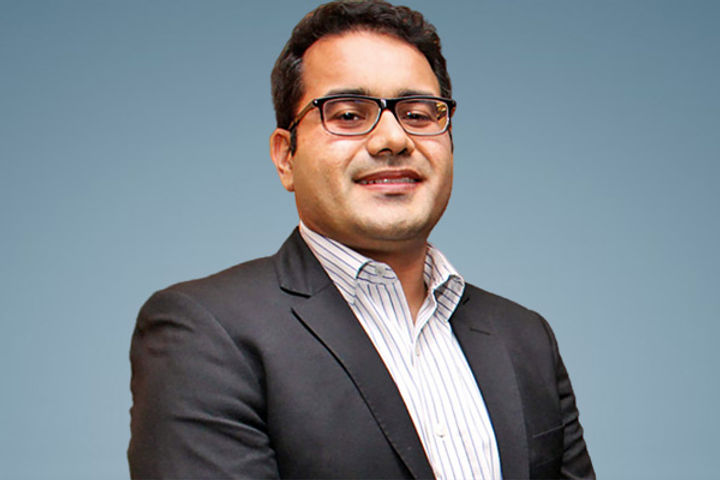Zepto gets $100 million, valuation at $570 million
The Mumbai-based company, which is among the most buzzy startups this year, has more than doubled its valuation to $570 million post the funding in just two months when it last raised $60 million at a valuation of $225 million.
New and existing backers including Glade Brook Capital, Nexus Venture Partners, Global Founders Capital, and Contrary Capital, also participated in the round.
Ultra-fast commerce startups promise deliveries within 30 minutes.
“We are growing 200% month-on-month. Since the last round, we have grown 10-fold in terms of volume. We are planning to increase our volume by 10x in the next 2-3 months,” cofounder Aadit Palicha said.
Founded six months ago by Stanford University dropouts Palicha and Kaivalya Vohra, Zepto promises to deliver groceries in 10 minutes.
-
“ETtech is a sharply-focused lens that brings alive India’s tech businesses & dynamic world of startups”
Kunal Bahl, Co-Founder & CEO, Snapdeal
-
“I read ETtech for in-depth stories on technology companies”
Ritesh Agarwal, Founder & CEO, Oyo
-
“I read ETtech to understand trends & the larger India technology space, everyday”
Deepinder Goyal, Co-founder & CEO, Zomato
As a 17-year-old, Palicha built another startup, GoPool, a mobile application that helped parents in Dubai find and schedule carpools to school.
Zepto is the youngest company in the quick commerce space, which has seen the entry of older players such as Swiggy and BlinkIt (formerly Grofers) this year.
Food delivery platform Swiggy has earmarked $700 million to scale up its ultra-fast commerce platform Instamart. BlinkIt, on the other hand, is in talks to raise $500 million from rival food delivery app Zomato. Both companies have said that they are clocking about a million orders a month.
Industry sources said Zepto will hit 100,000 orders per day by January.
The startup will use the fresh infusion of capital to expand coverage, build out different categories and strengthen its back-end technology. It also plans to go up to 1,000-2,000 employees from its existing 400. The bulk of its employees are in its operations team.
“We are excited to double down and lead this round in Zepto (YC W21),” said Anu Hariharan, XXX of Silicon Valley investor Y Combinator. “Since Aadit and Kaivalya went through Y Combinator, we have observed that they’re exceptional founders who bring relentless focus and “DoorDash-like” execution to the quick commerce model and are now adding 100,000 new customers every week, 60% of them women.”
 ETtech
ETtechAn investor who has closely tracked the category said that the sector will witness a “blood bath” similar to the early days of Swiggy and Zomato, as well-funded players try to capture a lion’s share of the market. Aggressive discounting by food delivery companies continues to be the strategy to dominate the market.
Targeting $1 billion in annualised sales
Palicha said the startup aims to hit $1 billion in annualised sales over the next 4-6 quarters. Even as Zepto has lowered discounts, he said that the transaction numbers haven’t been affected.
“Maybe we might have to ride out a storm in the next year or so, use a lot of capital to go through it just like the TinyOwl, Foodpanda phase for the food-delivery industry…We are cognizant of that (potential discounting) and are engaging with investors and raising back-to-back rounds because of that,” he said.
TinyOwl and Foodpanda were online food-delivery apps which shut down, got acquired, as the industry went through consolidation after having attracted a bunch of funds in the funding boom of 2014-15.
Zepto operates out of a network of ‘cloud stores’ or micro-warehouses to fulfil orders within the time frame.
The company was set up in September last year but launched its ultra-fast commerce service in April this year. It runs over 100 dark stores in major metros including Bengaluru, Delhi, Gurugram, Chennai, Hyderabad and Pune, with Kolkata soon to follow.
Dark stores are small warehouses located in the heart of a city through which orders can be delivered faster.
The ultra-fast commerce space is attracting a deluge of investor capital globally, even as questions remain around the profitability and necessity of such a model.
“I think we have a strong proof of concept at a decent scale. The way we are going about this we are confident this is viable and sustainable (business idea). It has a path to profitability, and we are able to demonstrate,” Albinder Dhindsa, cofounder of BlinkIt told ET in an interview earlier this month. “How this evolves depends on a lot of things we don’t control. (For example) How competitive the market gets, there is easy money in the market at this point, our execution capabilities…all these are extremely volatile and interrelated.”
For all the latest Technology News Click Here




